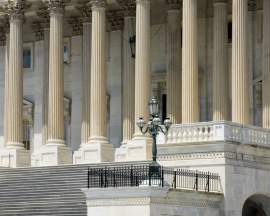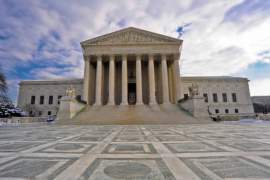
Facts About Circuit Appeals

What are the Circuit Appeals?
The circuit appeals or circuit courts are the intermediate appellate court system found in the United States’ federal court system. In general, a court of appeals will evaluate appeals from the district court systems within the federal judicial circuit, and in some cases, from other designated federal court systems and various administrative agencies. More specifically, circuit appeals refer to the appeal process that exists in the circuit court system.
The United States circuit appeals system is considered the most influential and powerful court system in the United States. These characteristics stem from a circuit appeals system to set a legal precedent in various regions that preside over millions of citizens; the United States Circuit Appeals system possesses a dominant influence over the legal system in the United States.
The United States Supreme Court chooses to preside over less than 100 of the more than 10,000 cases that filed annually; the Circuit Appeals system serves as the dominant arbiter on the majority of federal cases.
Structure of the Circuit Appeals System:
In the United States, there are currently 179 judges on the United States Courts of Appeals; each judge of the Circuit Appeals is authorized through Congress and more specifically Article III of the United States Constitution. Each judge found on the Circuit Appeals system is nominated by the President of the United States; if confirmed by the United States Senate, each judge maintains lifetime tenure, earning an annual salary of approximately $185,000.
In the United States, there are currently thirteen courts of appeals in the United States; that being said, there are other tribunals that maintain the title of “Court of Appeals” in their respective titles. Eleven of the Circuit Appeals are geographically defined, while the thirteenth court of appeal is responsible for hearing appeal cases on the Federal Circuit—the thirteenth court, which possesses a nationwide jurisdiction over certain appeals based on particular subject matter, is referred to as the United States Court of Appeals for the Federal Circuit.
The circuit appeals system, may also hear appeal cases that were based off of some administrative agency decisions and rulemaking boards—the largest share of these particular appeals are heard by the D.C. Circuit Appeals system.
What is a Circuit Court?
At the most general and basic of levels, a circuit court system refers to a group of courts that work together to form a regional justice system. Circuit courts will typically hear cases and appeals within a given region; as a result of the jurisdictional characteristics, the circuit court system will vary in scope and purpose from region to region and from country to country.
The circuit court system was originally established as a way to bring the laws of a particular nation into various localities where there was no access to lawyers or judges. This historical context; however, is no longer applicable, for circuits have recently been replaced by a permanent court system in the majority of jurisdictions.
In the United States of America, circuit courts appear at both the state and federal level; the United States congress has divided the nation into various judicial circuits—each judicial circuit will handle original cases and circuit appeals from within their region. The majority of states with the country possess their own circuit system; each circuit will determine the jurisdictional powers that the courts possess. That being said, most circuit courts are trial courts that will handle a variety of cases. Furthermore, the majority of state circuits are divided into district courts, while some are further divided to include separate court systems to handle different categories of law.
NEXT: Court Appeal




















